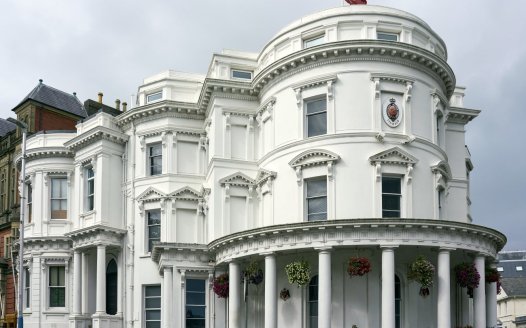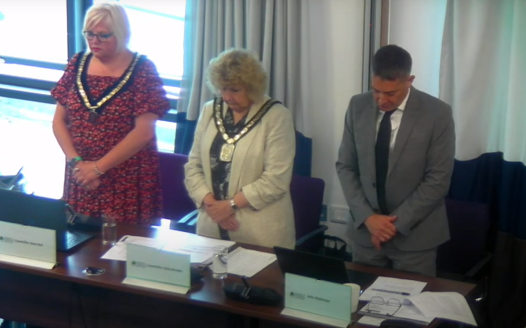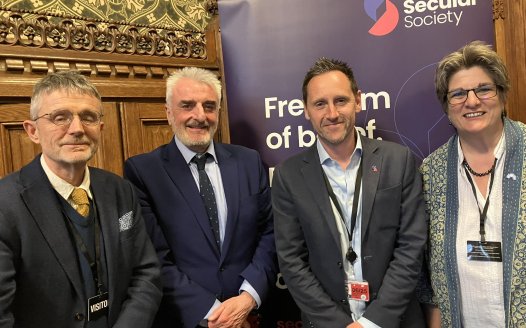US Supreme Court to hear council prayers case
Posted: Tue, 5th Nov 2013
Tomorrow (6 November) the United States Supreme Court will consider whether opening council meetings with prayers is legal. A previous ruling of the Supreme Court thirty years ago, in a case called Marsh vs. Chambers, said that clergy can deliver non-sectarian prayers before state legislative meetings – but they must not teach religious dogma or be "denominational".
This new case revolves around the council in Greece, a suburb of Rochester, NY.
Traditionally the council there had started its meetings with a moment of silence, but in 1999 the Town Supervisor John Auberger began inviting exclusively Christian clergy to open the meeting with specifically Christian prayers. The prayers were far from non-denominational and included such discussions as "the sacrifice of Jesus on the cross".
The public that had come to the meetings either as onlookers or as invitees were expected to stand and bow their heads during these prayers. People who had simply come to request planning permission or speak on some other local issue were expected to participate in specifically Christian prayers – even if they weren't Christian.
The two complainants in the case, a Jewish man and an atheist, managed to get the council to invite some non-Christians to give the prayers, but that didn't last long and soon the Christian monopoly resumed.
The council was deaf to further protest so the case was taken to court and eventually a federal appeals court ruled that the policy was unconstitutional as it affiliated the town too closely with Christianity. It said that those giving the prayers were prone to "convey their views of religious truth".
The Obama administration has briefed the Supreme Court and has argued in favour of the council's right to offer prayers at its meetings, but says they should be limited to an appeal for 'divine guidance' and not be about proselytising for a particular religion.
Some have argued that because prayers are banned in schools they should also be banned in public meetings – both are emanations of the state and coercing a particular religion in either setting must be seen as a step towards establishment, which is forbidden by the Constitution. Courts have responded by saying that children are forced to be in school and have no option but to listen if a prayer is recited in their presence but adults are not forced to be in a council chamber.
The lower court mulled the question of whether the prayers in Greece used "generically theistic terms" or referred to a deity as male. The lower court found most of the prayers to be too Christian and thus imposed one faith on the citizenry. However, it is likely the Supreme Court will disregard this argument, even though what the council is doing appears to be a clear breach of the constitution, and instead consider whether it is any court's business to analyse prayers to decide what is acceptable and what is not.
Legal experts predict that the Supreme Court will rule in the council's favour, saying justice is better served if courts are silent about the nature of prayer.
But one lawyer points the words of Justice Sandra Day O'Connor, who shortly before she stepped down from the Supreme Court wrote in a decision: "At a time when we see around the world the violent consequences of the assumption of religious authority by government, Americans may count themselves fortunate... Why would we trade a system that has served us so well for one that has served others so poorly?"
Find out more about the case of Greece v Galloway from Americans United.
Read the National Secular Society's briefing on council prayers.
See also: Praying for true religious freedom at the Supreme Court







